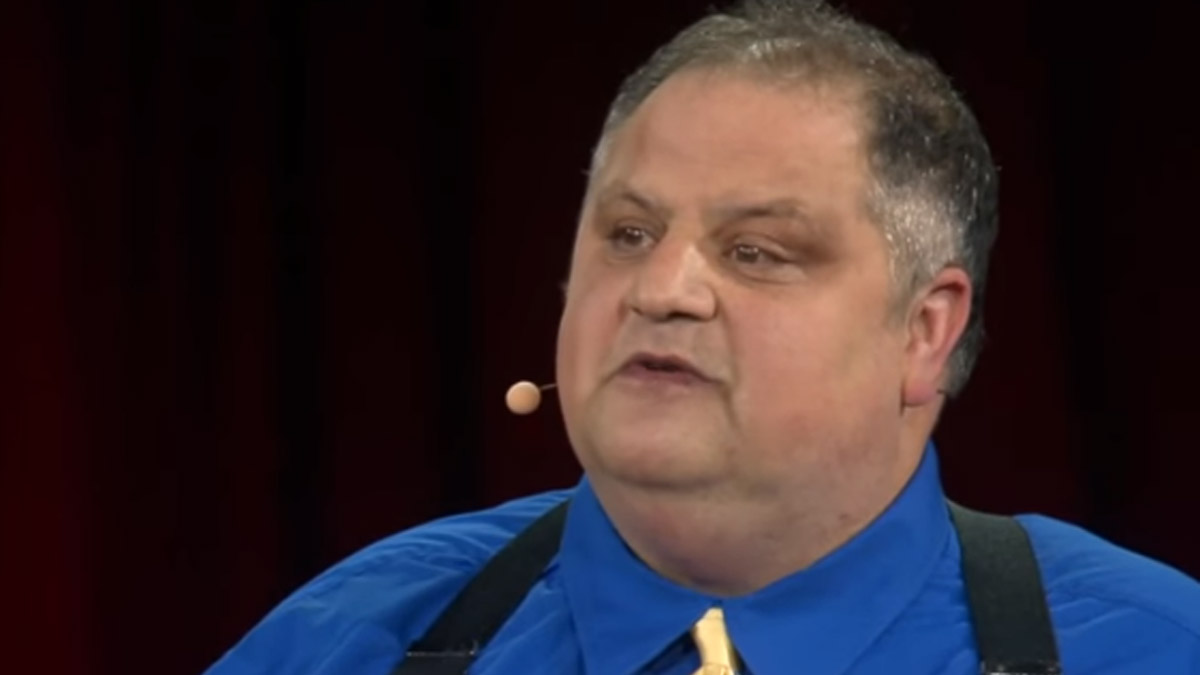Neurotribes: how autism book won Samuel Johnson Prize
Steve Silberman's sensitive study argues that the autism pandemic is 'an optical illusion'

A free daily email with the biggest news stories of the day – and the best features from TheWeek.com
You are now subscribed
Your newsletter sign-up was successful
American writer Steve Silberman's book on autism, Neurotribes, has won the 2015 Samuel Johnson Prize for Non-Fiction. The book has impressed judges and reviewers at a time of growing public awareness of the mental condition.
Silberman's Neurotribes: The Legacy of Autism and How to Think Smarter About People Who Think Differently is the first work of popular science to win the prestigious British award, reports the BBC. It was chosen from a shortlist that included Robert Macfarlane's Landmarks and Jonathan Bate's Ted Hughes: The Unauthorised Life.
Historian Anne Applebaum, chair of the judges, called the book "a tour de force of archival, journalistic and scientific research, both deeply researched and widely accessible". She also praised Silberman's "compassionate journalism" and said he excelled at using stories and anecdotes to explain complex medical issues to a wide audience.
The Week
Escape your echo chamber. Get the facts behind the news, plus analysis from multiple perspectives.

Sign up for The Week's Free Newsletters
From our morning news briefing to a weekly Good News Newsletter, get the best of The Week delivered directly to your inbox.
From our morning news briefing to a weekly Good News Newsletter, get the best of The Week delivered directly to your inbox.
Silberman, a science writer for Wired, the New Yorker, the MIT Technology Review, Nature and Salon for more than 20 years, told Reuters that he hoped the attention would help support efforts to have autistic people play a more productive role in society.
The author (pictured above) says that when he started researching the book in 2001 he thought he was looking into a very rare neurological disorder, but he ended up "writing about the long journey of a group of people towards freedom and self-determination, and that is in many ways the great story of our time".
Reviewers and experts have praised the book for its thoughtful exploration of autism.
The late neurologist, Oliver Sacks, who wrote the foreword to the book, called Neurotribes a work of "rare sympathy and sensitivity" and said of Silberman "he knew of no one else who spent so much time simply listening".
A free daily email with the biggest news stories of the day – and the best features from TheWeek.com
Ian Sample in The Guardian says: "The result is the book that families affected by autism have long deserved. And it happens to be beautifully written."
Indeed, says Nicholas Blincoe in the Daily Telegraph, Silberman's book offers an "epic history" beginning in Nazi Vienna with Dr Hans Asperger, who argued that children diagnosed with the newly named syndrome would, with care, not only flourish but might even exhibit signs of genius.
Silberman reveals that autism is neither a rare mutation nor a new one, but one of the oldest strands of our DNA, says Blincoe, adding: "Perhaps we notice autism more today not simply because its definition has expanded, but because it has become a metaphor for the computer age."
Yes, Neurotribes is not only "beautifully told" and "humanising", but also "important," says Jennifer Senior in the New York Times. Silberman, she says, makes the provocative argument that the autism pandemic is an optical illusion, brought about by earlier failures of diagnosis.
The implications are staggering, she says, because if earlier definitions had been as expansive as Hans Asperger's vision, "it's quite possible we wouldn't have been hunting for environmental causes or pointing our fingers at anxious parents".
Click here to win a signed copy of Neurotribes: The Legacy of Autism, along with signed copies of the full Samuel Johnson Prize shortlist